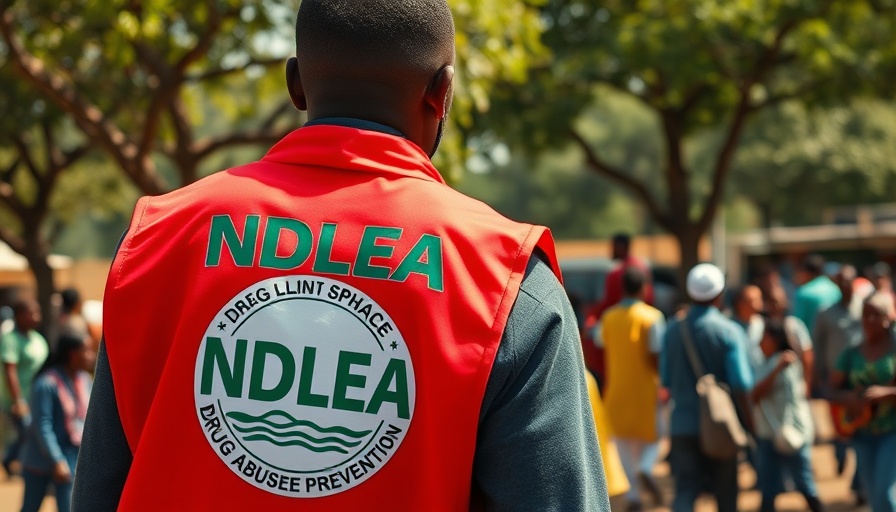
The Full Scope of Niger's Drug Abuse Epidemic
Drug abuse in Niger represents a significant public health crisis, with a staggering national prevalence rate of 14.4%—three times the global average. This epidemic has not only led to the deterioration of mental health within communities but has also been linked to a surge in violent crime, including armed robbery and kidnapping. As a major concern, drug abuse is often viewed not merely as a personal problem but as a societal one that robs the nation of its promising youth, leaving behind a trail of devastation.
In 'Drug Abuse: Stakeholders Push for Prevention Ahead of 2025 International Day,' the discussion dives into urgent collective action needed in Niger, exploring key insights that sparked deeper analysis on our end.
Understanding the Vicious Cycle of Drug Trafficking
The complexity of drug abuse in Niger cannot be viewed in isolation; it intertwines with poverty, exploitation, and institutional weaknesses. This vicious circle makes it challenging to combat drug trafficking. Moreover, while law enforcement measures like arrests and drug seizures play their role, experts agree they are inadequate to address the root causes. Without a multi-faceted approach to long-term prevention strategies, simply battling the symptoms of drug abuse will continue to prove futile.
Urgent Need for a Coordinated Approach
As the 2025 International Day Against Drug Abuse approaches, there is a growing consensus on the need for a united front against this alarming trend. Governments at all levels—national and subnational—must collaborate to create effective prevention and treatment programs. According to experts, the National Drug Law Enforcement Agency (NDLEA) cannot tackle this issue alone; it necessitates partnerships across different sectors of society to share the burden and gather the necessary resources for impactful action.
Local Governments: Key Players in Drug Control
In Niger, state governments play a pivotal role in drug control efforts. Their involvement in the NDLEA's initiatives is crucial for ensuring access to evidence-based prevention measures and treatment options tailored to local communities. Without local governance and community buy-in, national strategies are likely to falter, leading to more significant issues down the line.
Prevention Programs: Making a Difference at the Community Level
The MDLEA has signaled its intent to intensify efforts in the fight against drug abuse by focusing on families and communities. Key partners like the United Nations Office on Drugs and Crime (UNODC) are poised to support these initiatives by enhancing law enforcement capacity and expanding preventive measures. These community-centered approaches are essential for fostering awareness and delivering practical solutions to combat drug abuse effectively.
Looking Forward: Challenges and Opportunities
As we enter a new United Nations year focused on prevention, the challenges that lie ahead are immense. However, this initiative also provides an opportunity to rethink our strategies and implement comprehensive solutions. Every stakeholder—government, NGOs, and communities—must prioritize collaborative approaches while recognizing their shared responsibility in the fight against drug abuse. With concerted efforts to empower local communities and customize preventative strategies, Niger can set an example for other nations grappling with similar issues.
The insights derived from the discussion in the video, "Drug Abuse: Stakeholders Push for Prevention Ahead of 2025 International Day," serve as a clarion call to action. As the problem of drug abuse escalates, there is an imperative need for longitudinal and coherent strategies that embrace community engagement and multi-stakeholder involvement. Addressing drug abuse in Niger demands more than enforcement; it necessitates a holistic understanding of its societal roots and an unwavering commitment to creating sustainable solutions.
 Add Row
Add Row  Add
Add 


Write A Comment